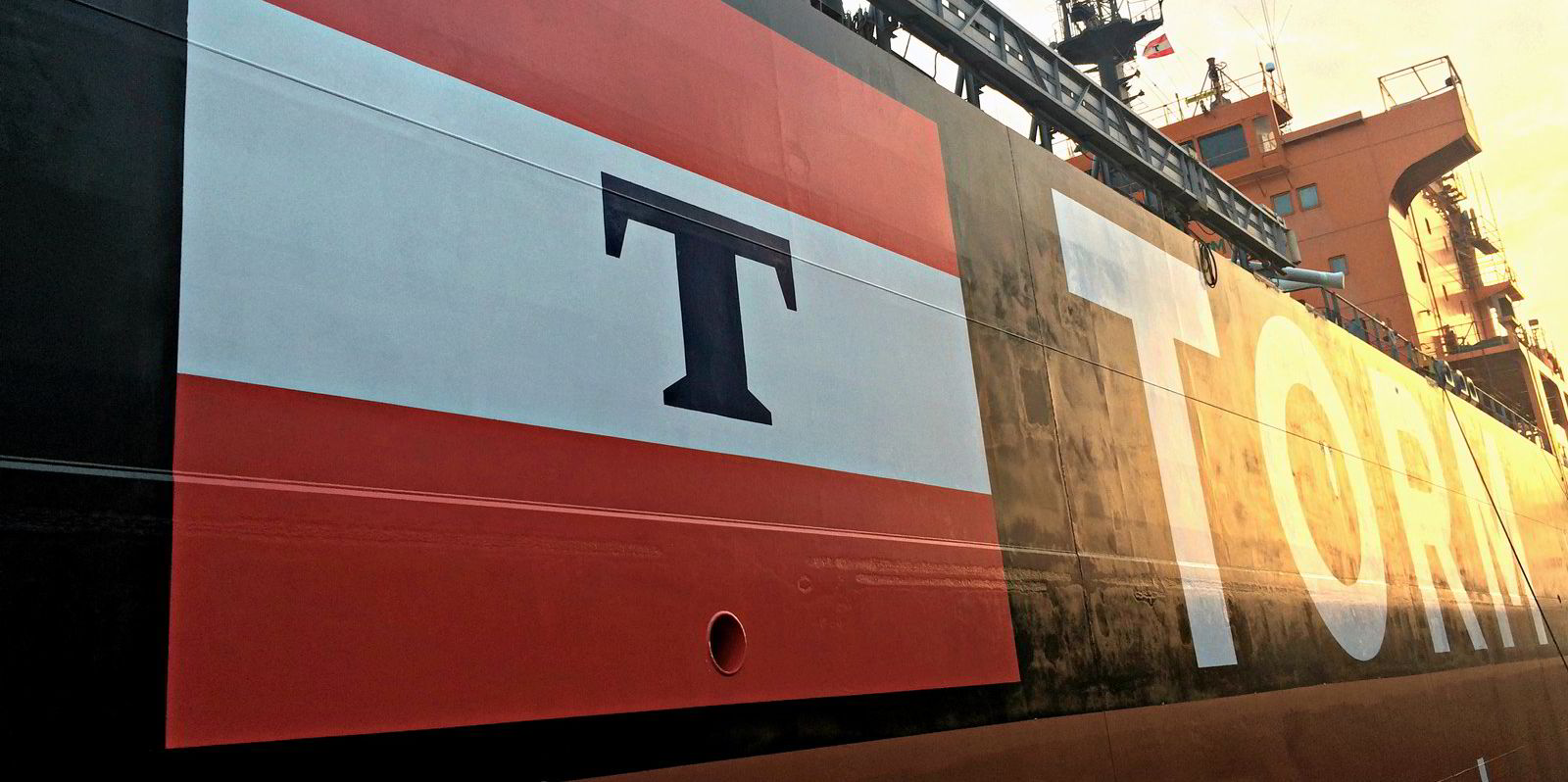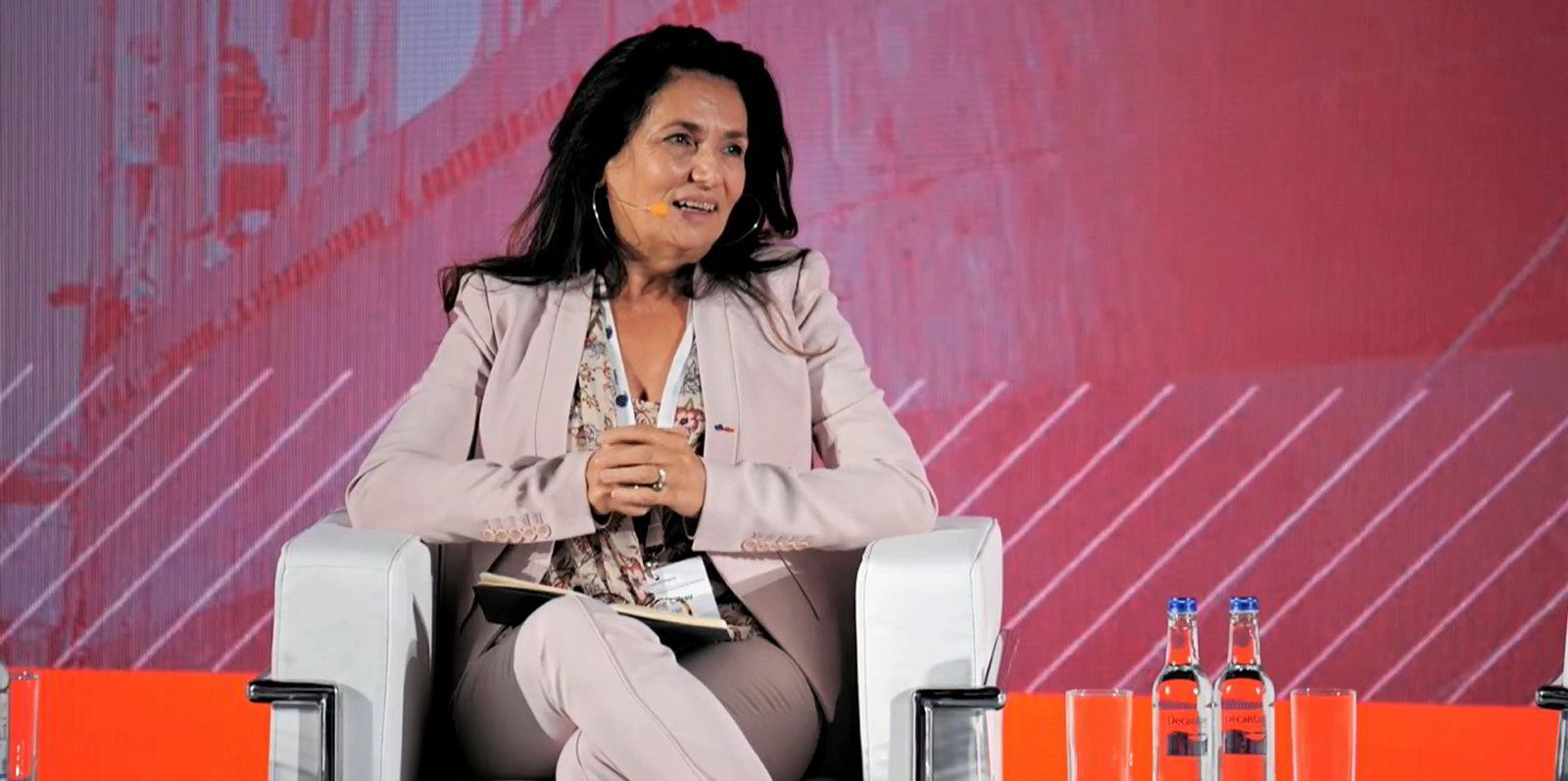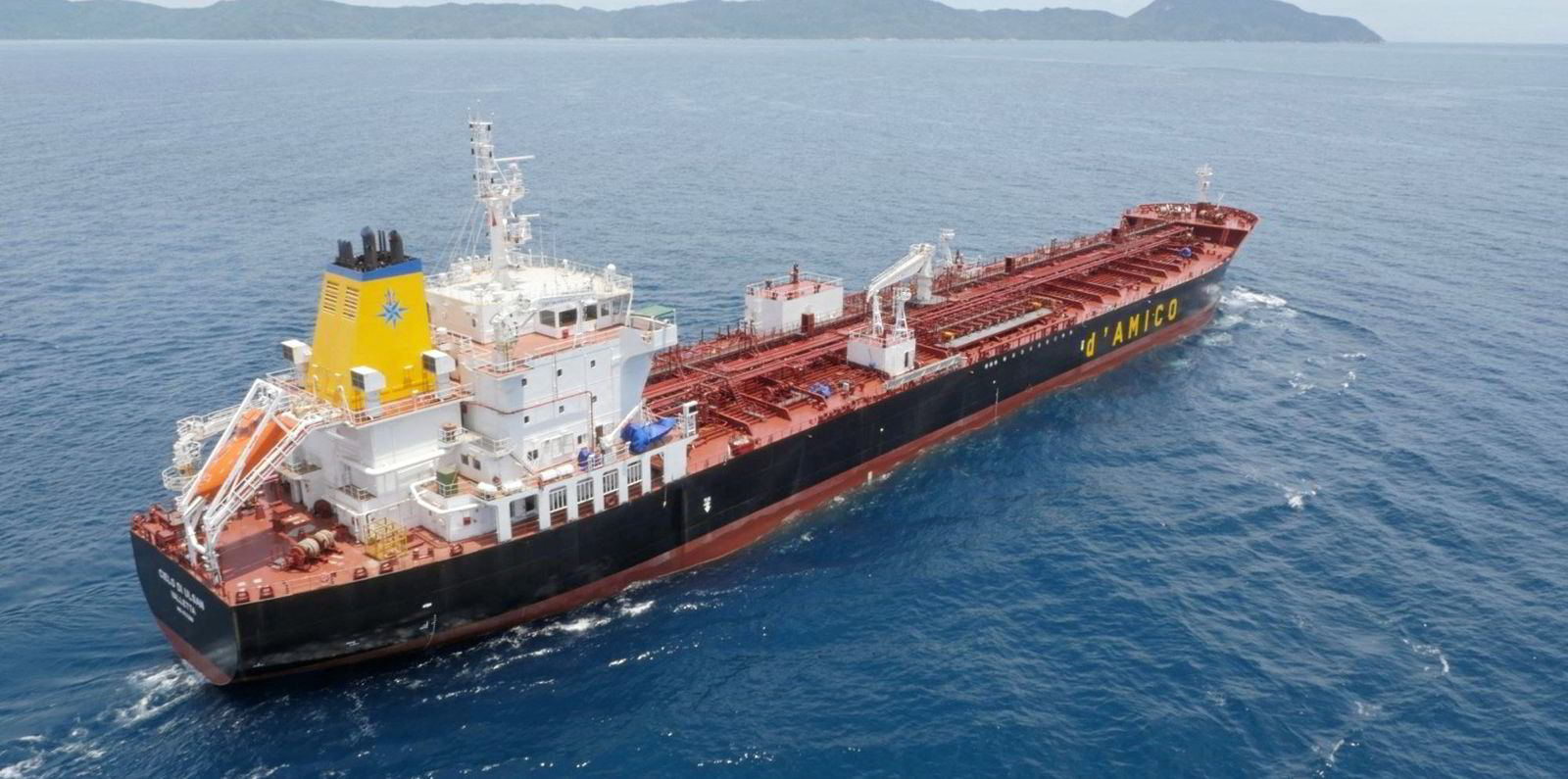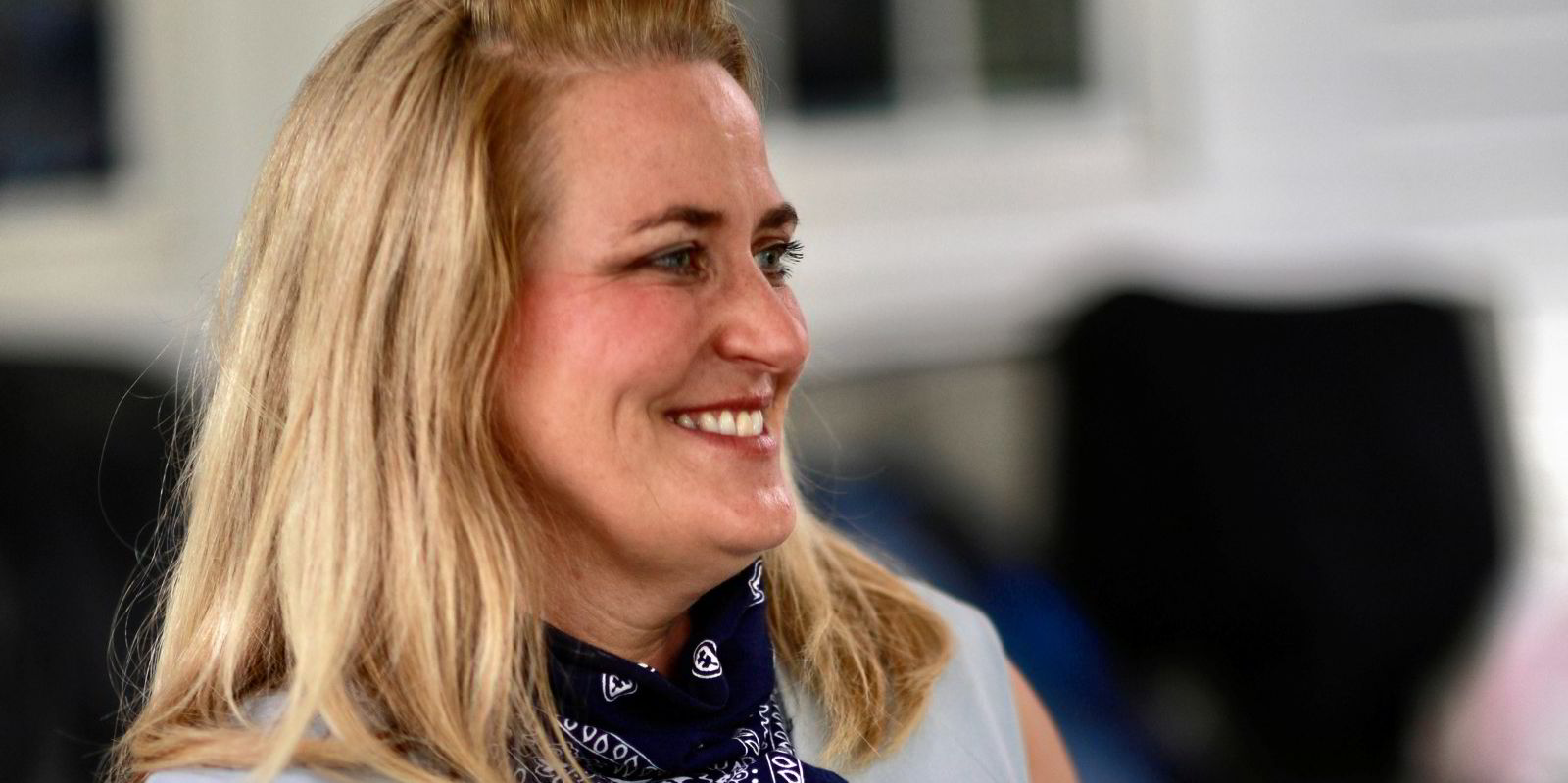Torm has signed agreements to refinance nine more MR product tankers through sale-and-leaseback deals that will give the company a $75.5m shot of liquidity.
The Danish tanker owner fell to a steeper loss during the third quarter on the back of historically low product-tanker freight rates in a chronically imbalanced market.
"The market for refined oil is at present negatively impacted by the restricted crude supply not meeting demand, thereby drawing onshore stocks resulting in stock levels that are below five-year lows in several regions," executive director Jacob Meldgaard said in Torm's quarterly report.
Torm's net loss was $14.7m for the third quarter, compared to $600,000 profit for the same period a year ago.
The basic loss per share was $0.18 during the three months, compared to earnings of $0.01 during the third quarter of 2020.
Meldgaard said the company would keep "a relentless focus on operational efficiency while maintaining a solid liquidity and capital structure".
Sale and leasebacks
Torm has commitments from an unnamed "new Chinese financial institution" for the sale and leaseback of nine MR tankers, all built from 2010 to 2012.
The deals will generate $75.5m in liquidity and are expected to be completed by the end of the first quarter of next year.
Torm said the deals underline its "ability to obtain attractively priced and diversified operational lease financing".
During the third quarter, Torm completed the sale and leaseback of two China-built LR2 tankers — the 114,000-dwt vessels Torm Hellerup and Torm Herdis (both built 2018). The lessor is an unnamed Chinese financial institution with which Torm has an existing relationship.
Fleet earnings
Torm's time-charter equivalent (TCE) revenue totalled $91.6m during the third quarter, compared to $109.9m during the same period last year.
Average TCE rates for Torm vessels were $12,854 per day during the three months, down from $16,762 per day in the third quarter of 2020.
Demand for seaborne transport of petroleum products was hit hard during the third quarter by pandemic-related lockdowns in Asia and refinery outages in the US Gulf, caused by Hurricane Ida.
Torm said this impact was partly offset by increasing long-haul trade flows to the Atlantic, where product inventories have fallen below five-year lows.
"This was aggravated by the weak crude tanker market, where crude supply is still lagging demand, and the market continues to rely on inventory draws," Torm said in its report.
Looking ahead, Torm has covered 27% of its remaining total earning days for this year at an average rate of $13,880 per day.
As of Sunday, Torm had 69% coverage for the fourth quarter at an average rate of $12,985 per day.








